Iran Claims Diplomats Visited Women's Prison
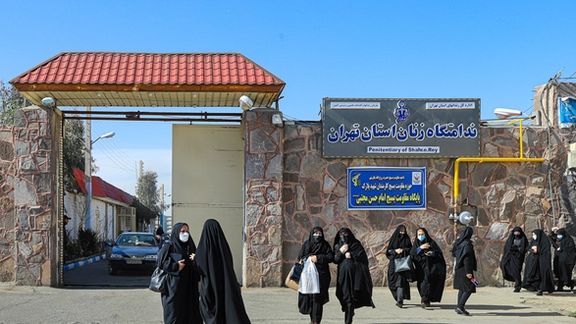
Iran’s judiciary says diplomats from 28 countries and representatives of international organizations have visited the women's ward at the notorious Gharchak (Qarchak) Prison south of Tehran.

Iran’s judiciary says diplomats from 28 countries and representatives of international organizations have visited the women's ward at the notorious Gharchak (Qarchak) Prison south of Tehran.
Mizan, the Judiciary News Agency, reported Thursday that a delegation of 36 diplomats visited the penitentiary on Wednesday without citing the names of either the organizations or countries represented.
The visit comes about a month after the transfer of political prisoners from the prison and a few days after several detained female protesters revealed sexual assaults in Gharchak and Evin prisons.
"The women's penitentiary was chosen so that foreign guests can see the unique and diverse services and facilities for female inmates and get a correct understanding of the principles of Islamic prisons," claimed Kazem Gharibabadi, Secretary of Iran's High Council for Human Rights.
Pointing out that about 700 women are incarcerated in Gharchak prison, Gharibabadi claimed that women make up about 2.5% of Iran's prison population, which indicates "a very low rate of crime among Iranian women compared to the global rate."
In the past few days, several Iranian female political activists have spoken up about prison guards forcing them to strip naked, even in front of cameras, to humiliate them. Others have spoken of full sexual assault and rape.
Anti-compulsory hijab activist, Mozhgan Keshavarz, told Iran International that she was first strip-searched after her arrest in April 2019 and detention at Vozara Detention Center in Tehran where the 22-year-old Mahsa Amini died in custody on September 16 last year.
Since her revelations, other female activists including Zeynab Zaman, Nasibeh Shamsaei, Shaparak Shajarizadeh and actress Mahnaz Afshar who were subjected to the same humiliation have also come forward with their stories.
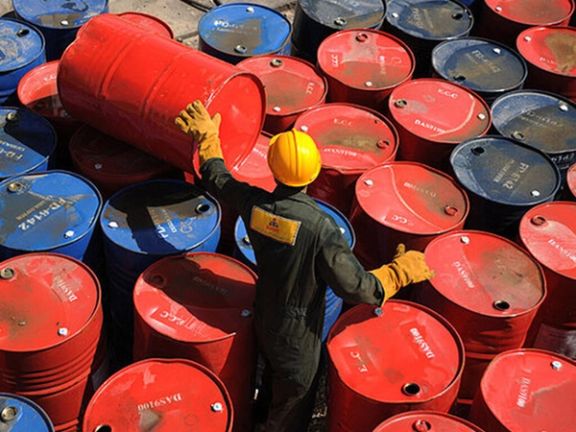
Documents obtained from a hack into servers of Iran's president office revealed that €3.6 billion worth of oil revenues remained in banks and not entered the government’s systems.
According to a confidential report by the Islamic Republic’s Intelligence Ministry, leaked by the hacktivist group ‘Uprising till Overthrow,' banks kept currencies they received from government entities exporting oil and did not transfer them to the country’s special currency scheme known as NIMA.
NIMA is set up for foreign currencies to be sold at a lower rate by exporters and for importers to buy what they need at the same low rate to finance their purchases from other countries. However, only traders with connections to the regime can use the system to their advantage, and ordinary businesspeople would not be allowed to use such benefits. The official rate at NIMA is at least 40 percent lower than in the foreign currency free market.
The document released after the hack is a list of oil revenues in deposit account balances of 11 Iranian banks for about a six-month time span ending on May 9, 2023. The total balance with the banks stood at the equivalent of €3.27 to €3.6 billion in the period.
The document also provided some sort of analysis for the reasons behind the issue and proposals to solve it. According to the ministry, the main reason the banks refrained from injecting the foreign currency into the NIMA system is its low exchange rate, which is way below the open market. It added that the regulatory bodies are not able to push the banks to sell the foreign currencies according to a timetable that suits the government and not the banks, which do not seem to be in a hurry to exchange the currencies in the NIMA system.
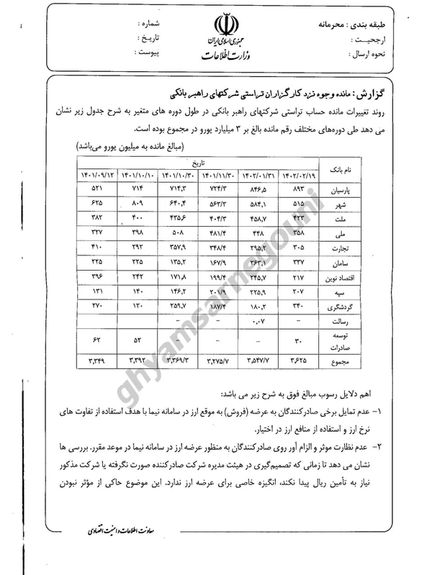
A point that is buried in the document is that the major portion of the money earned from oil exports are in Chinese Yuan because Chinese firms – particularly Chinese teapot refineries – are currently the main importers of Iran’s crude. And Yuan cannot be sold in the Iranian currency market like hard currencies such as the dollar and the euro.
Dalga Khatinoglu, an expert in Iran oil and energy issues, told Iran International that the foreign currencies offered in NIMA are mainly in Chinese Yuan, followed by smaller amounts in United Arab Emirates’ dirham, Kuwait’s dinar, Turkish lira and Russian ruble.
The analyst believes that the money has remained in the banks and cannot be used by the government because yuan does not have a lot of buyers in the market and the banks prefer to keep the funds in yuan instead of exchanging them with the national currency which has been losing most of its value.
The Iranian currency has been on a freefall since early 2018, when it became apparent that then-president Donald Trump would withdraw the US from the 2015 nuclear deal, the Joint Comprehensive Plan of Action (JCPOA), and impose sanctions on Iran. Under ‘maximum pressure’ Washington threatens to sanction third parties buying Iranian oil or dealing with its financial sector, which has deprived Tehran of foreign-currency revenues.
The leaked document did not explicitly mention the oil exporters but in recent years the government tends to issue permits for state organizations and the Revolutionary Guard to get oil from the country’s refineries and export it however they can. Then they can use the revenues to boost their budgets.
According to the document, the process of selling oil and extracting the revenues is very murky and the government, particularly the Central Bank of Iran, should devise plans to make the transactions clearer. The Central Bank should have tighter control over the amount of exported oil and the revenues from it and identify the exporters who refuse to sell the foreign currencies they earn in the NIMA system, the leaked document said.
The hacktivist group ‘Uprising till Overthrow' claimed on May 29 that it breached 120 servers at the presidential office, getting access to internal communications, meetings minutes, President Ebrahims Raisi’s online conference platforms and about 1,300 computers inside the office.
In the new cyberattack, the group is said to have gained access to “tens of thousands confidential documents” but is releasing them in daily batches.
Earlier in May, the group, affiliated with the Albania-based opposition Mojahedin-e-Khalq (MEK) group -- People's Mojahedin Organization of Iran, hacked into the Islamic Republic’s foreign ministry servers, disabling 210 sites and online services and leaking another large batch of documents.
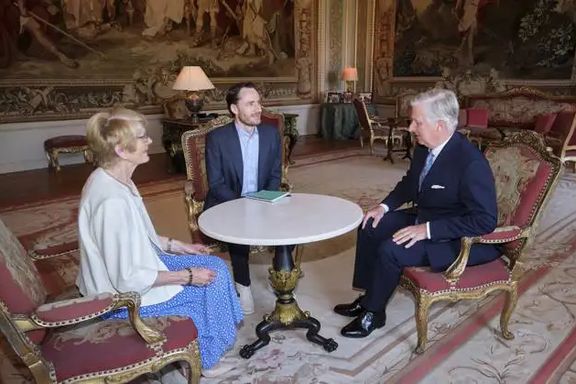
The Belgian aid worker exchanged with an Iranian terrorist last week wrote a letter to thank all those who mobilized his release.
Olivier Vandecasteele said that after 15 months of arbitrary detention he was finally released and is doing fine.
“Having had no direct access to outside information for the entire duration of my detention in solitary confinement (i.e., 13 consecutive months), I was miles away from imagining the extent of the citizen mobilization - which all of you have worn day after day - across the country and across borders,” read his letter, published on Twitter.
He also thanked the efforts of the Belgian government while calling on governments to continue efforts to release further hostages held around the world.
“Let us bring active support to projects that carry the values of humanity, solidarity, and hope. This world, which is unfortunately often terribly cynical, needs it now more than ever,” he wrote.
Activists were outraged over an Oman-brokered swap deal according to which Iranian diplomat Assadollah Asadi who was convicted of terrorism, was freed in exchange for Vandecasteele.
Assadi, a former attaché at the Iranian embassy in Austria who was convicted of plotting to bomb a gathering of the exiled opposition group Mujahedin-e Khalq Organization (MEK) near Paris on June 30, 2018, was released and arrived in Tehran on Friday.
Vandecasteele, who was detained last year and sentenced to 40 years in prison and 74 lashes for alleged “spying and cooperation with the United States, money laundering and smuggling $500,000 out of Iran,” was also released as part of the deal.

A regime member of parliament claims wearing the hijab is a timeless commandment by God.
Morteza Aghatehrani, the chairman of the Parliament's Cultural Committee, went as far as to say that all legislation should follow the orders of God.
His remarks come amidst mass rebellion against regime mandated hijab, with women refusing to wear them in public and burning them on the streets.
Meanwhile, Hassan Rahimpour Azghadi, an ultraconservative commentator who usually speaks on Iranian national television as a member of the Cultural Revolution Council, claimed on Thursday that "the removal of hijab is because they [enemies] want to return us to the pre-revolution era.”
He further claimed that the 'enemies', referring to the likes of the US and Israel, want to turn the celebrities of the Shah’s time into heroes for today's generation.
The regime continues to enforce the hijab both covertly and overtly, with the likes of hijab patrols and surveillance techniques across the country as it fights the ongoing hijab rebellion, sparked by the death in morality police custody of Mahsa Amini. The 22-year-old was arrested for the 'improper' wearing of her hijab in September, sparking a nationwide uprising.

Disclaimer: The following report was published based on reports in the Iranian media on Thursday that they later changed and admitted their news was wrong.
An American hostage in Iran, Siamak Namazi, has informed his family that Iranian authorities have told him he will be freed soon, media in Iran reported Thursday.
UPDATE - Later on Thursday Shargh newspaper in Tehran quoted Namazi's lawyer as saying that he did not tell his family about his possible release and the news was totally false.
The news was brief and there were no details. It has not been confirmed by the US government or directly by the family, but the development comes after multiple reports of talks between Tehran and Washington to release Americans held by the Islamic Republic in exchange for Iran’s frozen funds abroad.
Iran International reported last week that talks were taking place to release Iranian funds held in South Korea in exchange for possibly three Americans who were arrested over the past eight years and convicted on unsubstantiated charges in sham trials, without due process of law.
A source with direct knowledge of the talks had told Iran International that talks had made progress and focused on Iranian funds held in Iraq and South Korea.
Around $7 billion is held by two South Korean banks, due to US financial sanctions on Iran. The funds represent Seoul’s debts to Tehran for importing oil before US sanctions fully kicked in in May 2019.
Those funds would be released in exchange for the hostages while more than $10 billion held by Iraq due to US sanctions could be released in exchange for Tehran to show more “flexibility” in nuclear talks, the source said.
US sanctions have driven Iran’s economy into a serious crisis, with the country unable to generate much oil export revenues. It has spent almost all of its foreign currency reserves, with inflation nearing 70 percent and the national currency having lost half its value in less than a year.
Nour News in Tehran affiliated with the National Security Council posted a cryptic tweet Thursday saying that Iran has tried for a long time to arrange a “prisoner exchange” out of its “humanitarian concerns” but the United States unnecessarily delayed an agreement. The tone used seems to indicate an agreement has now been reached.
Currently there are three dual nationals with American citizenship and two individuals with US permanent residency held by Iran on trumped-up charges of espionage.
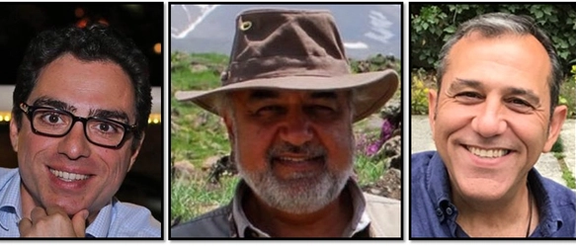
The three citizens are Siamak Namazi, Emad Sharghi and Morad Tahbaz, while Jamshid Sharmahd and Shahab Dalili are US permanent residents.
In a White House briefing on Wednesday, national security coordinator John Kirby was asked about the recent trip of Oman’s Sultan to Tehran as a sign of indirect talks. Kirby responded that “We have — we have multiple ways of communicating with the Iranians. I’m not really sure I understand what you’re getting at.”
However, it is widely believed in Tehran that the Omani ruler, Sultan Haitham bin Tariq al-Said’s visit was primarily a mediating mission. Oman has played the role of a go-between with Tehran on several occasions.
Axios recently reported that Brett McGurk, President Joe Biden’s senior Middle East adviser, took a low-profile trip to Oman earlier this month for talks on possible diplomatic outreach to Iran.
This was an indirect confirmation of Iran International’s earlier report about ongoing talks on release of Iran’s blocked funds.
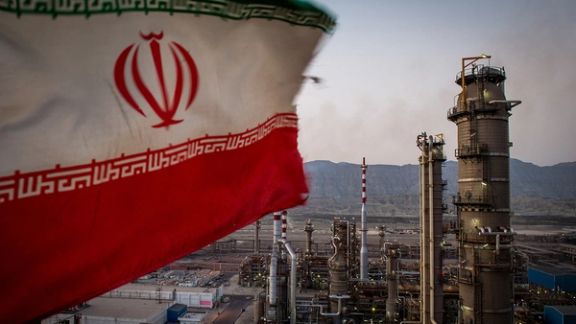
Two online media outlets in Iran have asked the question that is on everyone’s mind: Where is the oil export money the government claims to be earning since 2021.
There is little doubt the Iranian regime succeeded in boosting its oil exports despite US sanctions since late 2020, coinciding with Joe Biden’s victory in the presidential elections and his policy of negotiating a return to the 2015 JCPOA nuclear deal.
Former President Trump’s sanctions had reduced Iran’s crude exports to around 200,000 barrels per day, but since 2021 Iran has been shipping at least 600,000 barrels.
Industry monitoring firms, such as TankerTrackers, Vortexa, Kpler, and other sources estimate Iran exported anywhere from 810,000 to 1.2 million barrels of crude oil per day in the second half of 2022. Tehran keeps the export volume secret, but top officials constantly claim revenues are increasing, without providing details, apparently to protect buyers who are violating US sanctions.
Nevertheless, in the past two years the country’s economic crisis has worsened and many ask where the oil money is and why the revenues do not help the situation. The Iranian currency has more than halved in value in one year and recent reports say annual inflation is approaching 70 percent.
Farazdaily, a website in Tehran posed the question to two members of parliament last week and they did not deny that more oil is being shipped – primarily to China – but they had no answer about why the revenues do not have a positive impact on the economy.
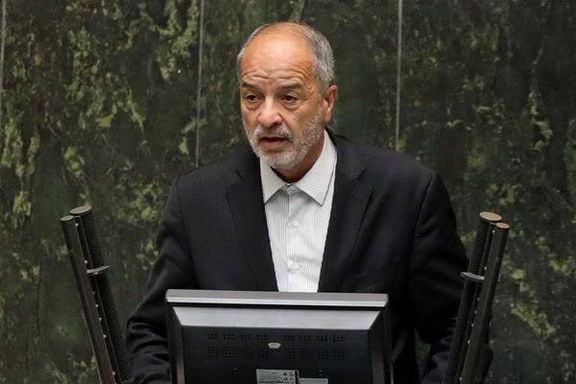
One of the lawmakers who spoke to FarazDaily, Yaghoub Rezazadeh, first secretary of parliament’s National Security and Foreign Policy Committee claimed that Iran’s current economic problems are partly caused by sanctions in general, that makes trade with other countries hard and exports non-profitable.
If Iran exported an average of 800,000 bpd even at discounted price of around $75 per barrel in 2022, its revenues just from shipping crude oil would have been $22 billion. In addition, there is the export of oil products, such as gasoil, gasoline, and other products, which officials have said generate revenues almost equal to crude exports. Therefore, Iran should have had at least around $35 billion income, a sum that would have financed most of its annual budget.
According to the official budget bill, 55-percent of the government’s operational budget this year is supposed to be generated by oil exports.
In this scenario, the government would not need to print money, which is the reason why inflation is approaching 70 percent and the national currency is dropping.
The puzzle about Tehran’s oil revenues is that its main buyer China might not be paying for the oil in US dollars or other hard currencies, but instead bartering the oil with goods or in yuan. Iran might also be offering much larger discounts that what observers estimate. The third factor may be the cost of the illicit exports in additional shipping fees and payment to middlemen to repatriate the cash amid stringent US banking sanctions on Iran.
In the worst-case scenario, Iran might be collecting far less than $20 billion in all its energy exports.
Rezazadeh actually admitted that Iran has a hard time repatriating the oil export revenues and other debts from China, Iraq, Turkey, Syria, Afghanistan and some neighboring countries in the Persian Gulf region.
Referring to sanctions he said, “Naturally, with all these impediments we are not able to bring back proceeds form oil exports. Many countries owe us money that we cannot repatriate. We have sold oil, natural gas and food to other countries without collecting the revenues.”